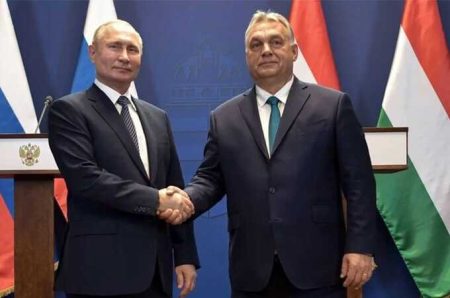The head of Tuva, Sholban Kara-ool, wants to address disputed areas on the borders of the republic with Krasnoyarsk Krai and Irkutsk Oblast. He claims that the mineral springs in the mountains, historically used by the Tuvinians, were transferred to the neighbors in post-Soviet times. The authorities of Krasnoyarsk say that the borders between the regions cannot be changed. Igor Kobzev, Governor of the Irkutsk Region, stated that changing the region’s borders is not being considered.
Sholban Kara-ool mentioned territorial “ambiguities” with Krasnoyarsk Krai and Irkutsk Oblast on November 18. He stated, “We have disputed areas on the border. They involve uninhabited lands, mainly mineral springs in the mountains, which Tuvinians have used since ancient times as healing springs. In the post-Soviet times, for some reason, they were given to the neighbors.”
He wrote on Facebook, after a meeting with Sergei Menyailo, Presidential Envoy to the Siberian Federal District, and Oleg Skufinskiy, that these issues require thorough consideration and fair resolution.
At a meeting where the “Filling the Unified State Register with necessary information” project was discussed, the press service of the republican government explained to Kommersant that one of the disputed areas is the Uru arjaan (monument of Uyuk culture) located at the junction of Tuva and Krasnoyarsk region. Work on the delimitation of this territory began in April of this year. An interdepartmental working group has been created in the government of the republic, which has already reviewed materials on the description of the border location. The other disputed territory is located at the junction of Tuva and the Irkutsk region.
According to the republican government, “The recalculation of the coordinates of the characteristic places of the Angara region into the local coordinate system of Tuva revealed a common point.” However, work on refining the border requires agreement with Buryatia. Only after that can land surveying documentation be prepared. Sholban Kara-ool stated that the local offices of Rosreestr promise to work to clarify the boundaries and provide assistance. He summarized that these issues are being worked out with the administration of Krasnoyarsk Kray and other regions in an atmosphere of dialogue.
The administration of Krasnoyarsk krai mentioned that they are working to coordinate the borders as planned under the control of the Government of Russia, but no changes are under consideration. They stated, “In 2001, Krasnoyarsk Krai and Tuva entered into an agreement on the passage of borders. Now we are faced with the task of transferring this data to the UGRN.”
On November 19, the issue of territorial claims of Tuva was discussed at the session of the Krasnoyarsk Krai Legislative Assembly. The deputy Denis Pritulyak (LDPR) proposed adopting a resolution prohibiting the alienation of Krasnoyarsk territory. He said, “What kind of feudalism is this? If the head of a neighboring region wants the lands to belong to his republic, he can become part of the Krasnoyarsk Territory on the rights of Kyzylsky District. We are ready to accept. But we will not allow any alienation.”
Igor Kobzev, governor of the Irkutsk region, told Kommersant that no one has discussed Tuva’s territorial claims with him. “No one asked or will ask any questions about changing the borders,” Kobzev said. Kommersant Kommersant told Rosreestr that determining borders between regions and recording them in the Unified State Register is the purview of the regional authorities.
This process must take place on the basis of an agreement between the heads of the regions. Recall that in the fall of 2018, the signing of the agreement on the establishment of the border between Chechnya and Ingushetia led to mass protests by residents of Ingushetia and clashes with the police. The protesters insisted that the Chechen side included native Ingush lands and demanded a referendum. As a result, the Constitutional Court of the Russian Federation upheld the agreement and the Ingush protest leaders were charged with extremism.




